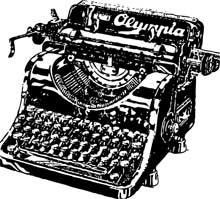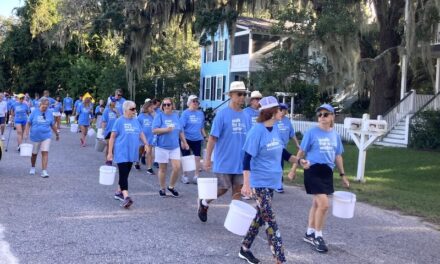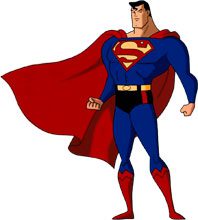 The Process of Writing Non-Fiction
The Process of Writing Non-Fiction
Recently, I explored the creative process used by fiction writers. Thriller writer extraordinaire John Sanford’s explanation prompted me to develop questions for non-fiction writers to consider. By answering them myself, I got a feel for their validity and could provide others with a sample of the sort of process flow I was looking for.
Happily, two outstanding writers responded. One is Kim Cross, then senior editor for “Southern Living” magazine (now Editor-at-Large) who writes beautifully about various subjects including how people process the transforming experiences accompanying a major storm. A second is James Scott, an award winning journalist who wrote the amazing “The War Below” (2013, Simon & Schuster) about how top U.S. submariners fought the Japanese in World War II. He is currently finishing a book about the famous Doolittle raid on Tokyo in 1942.
The questions track the basic writing process. The responses are from me (JRS), Kim (KC) and James (JS). We don’t represent all non-fiction writers or follow identical processes, but there is a common thread and discipline.
1. What is/are the source/s of your ideas or concepts for an original work?
JRS: Often personal experiences or books. Decades ago, I attended my 10-year high school reunion. Then the rookie psychologist did some research. The resulting “Psychology Today” article generated lots of publicity. Recently, clamming trips have spurred e-mails which morphed into columns.
KC: There’s a different answer for every story. A conversation. A question. An experience that yields an aha moment or life lesson. A desire to solve a problem. A story that needs to be told. These days I am most focused on capturing timeless stories with tension and meaning, and telling them in a way that they will be relevant years from now.
JS: I normally stumble across my ideas while researching others. I spend a lot of time in archives, poring over records and oral histories. As I read, I see interesting things all the time, which I jot down for possible future use. I have a half-dozen ideas cooking at any given time.
2. What major steps do you regularly go through in completing a piece (essay, article, book, etc.)?
JRS: I scribble “notions” in my notebook. Next comes an outline. Then a draft supported by research (e.g., reading assignments, sometimes thousands of pages). Phone calls, then more drafts. I sometimes e-mail a friend for their reaction.
KC: I usually begin with a search to see what has been written about the topic. (Nexis is great for articles, particularly those on sites that require subscriptions.) I begin gathering sources that have been quoted, and those who have expertise in a topic, and start a folder – either a physical one with printouts, or a virtual one in Evernote.
Once my “background” research is done – the point when I feel equipped to ask intelligent, informed questions – I start the interviewing process. I try to keep to the point, but allow time for open-ended questions to lead me in unexpected directions. I find it really important to listen, just listen. If you don’t try to dominate the conversation, people will tell you things you haven’t thought of to ask about. Let them. At the end of every interview, I ask if they know of anyone else I should talk to.
When I start to get the same information over and over, without anything new surfacing, I know it’s time to stop researching and start synthesizing. If it’s a long-form piece, I usually sketch out a very basic outline – lead, billboard graf, each scene and the point it makes. When the amount of information is overwhelming, I put the notes aside and write what surfaces in memory first, because those are usually the most important points. I bring the notes out after a rough draft exists to fact check or look for more subtle points I may have missed.
When I start writing I often get into a zone that feels either like runner’s high or a death march. If the former, I stick with it as long as possible until I crash or lose momentum. If the latter, I’ll give myself a word quota and then reward myself with a break that involves something not so brain-intensive but is still productive…
JS: I tend to tell stories chronologically, which makes the framework of a book much easier. I don’t tend to start writing until I have done a lot of research, so I tend to have a solid handle on the material. I then maintain a running outline of a book that I revise as I move forward. Sometimes I move scenes around, etc. Having that outline allows me to keep track of which scenes are where.
3. How do you research or fact check your work?
JRS: No opinions or conclusions survive unless they are supported. Any valid data source is in play.
JS: I spend about a year researching a book. That involves interviews, trips to archives, hiring research assistants in some cases, and ultimately processing thousands of pages of records. I use a camera and shoot images of all documents that I then convert to PDFs. That way I can have digital access to files on a laptop where ever I travel. I also keep meticulous citations as I write, which allows me to trace any paragraph or sentence back to the original source. That makes it easy to fact check.
4. What criteria do you apply to the working manuscript/draft in order to evaluate it?
JRS: I ask … will readers need a dictionary or Google to understand this? If yes, fix it. Will they find it engaging?
KC: I read it aloud to evaluate cadence and flow. If I trip over the words, it needs smoothing. The logic/structure should be apparent, so clear you could diagram it. I look for places to tighten — spots where one word can do the work of three. If it is a narrative piece, I pay attention to tension and emotional pacing…
JS: I have no set criteria. I work on a scene until it reads well, then I move on. I don’t obsess, because with a 400-page book, you would never finish. But I feel like I can normally tell when a scene is as good as I can make it.
4a. What signals you that you’re done with a piece, i.e., ready to submit it to the editor?
KC: I stop waking up at night thinking of parts if it that need improvement.
JS: I tend to work right up until my deadline. By then, I have had friends who are writers review the manuscript to help make sure it is in as good of shape as possible.
5. How, if at all, does reader feedback affect your next writing project?
KC: I always like intelligent reader feedback… I have learned to force myself to avoid reading online comments, however… Every story teaches you something, and I try to deliberately apply those lessons to future stories.
JS: Not a lot because by the time a book comes out — which can take up to 18 months from the time it is turned in – I am already at work on another project. For example, my current book on the submarine war just came out a few months ago, and I am nearly done with a new one about the Doolittle Raid.
6. What motivates you to take on a new project?
KC: The burning desire to share something interesting, useful, or meaningful with others. The desire to use a story to make people feel something, even if all they feel is less alone.
JS: Story. That is the number one motivator. If it is a good story, then the research is fun and the book will write itself.
Aha! There’s another of those common threads I was looking for, fun. Structure, research, listening, fun. Who would have it any other way?







